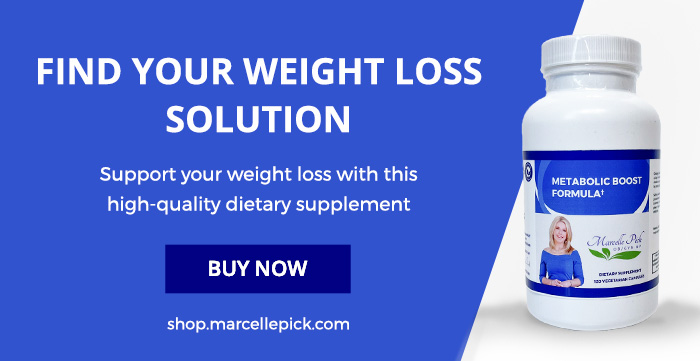Updated: Jan. 28th, 2024
“I want it all – and I’ve always been able to do it all – work, care for my kids, help my parents, keep the house clean and find time for volunteering and fun. So why does it feel so hard all of a sudden?”
That’s a question I hear from many women who have been “doing it all” for far too long. For years they’ve taken on multiple roles – caring parent, loving wife, dutiful daughter, committed community member – seemingly with ease.
But here’s the problem: You can’t do all of these things all of the time without putting far too much stress on your body. Even when it feels okay, the stress is slowly building up in your body. That’s why so many women eventually hit the “burnout” phase.
I hear a lot of people talking about balance in life – and that doesn’t mean cramming twelve hours of activity into eight hours! I once heard someone say balance is the wrong word here – and that makes perfect sense. After all, on a balance scale each side must be given equal weight to achieve perfect balance. But in life, it’s impossible to give every aspect equal weight all the time — you must choose priorities.
What these women have been doing isn’t balancing everything – it’s juggling! And sooner or later, with too many balls in the air, some are going to fall. And if you juggle for too long, you’ll tire your arms so much that they’ll all come tumbling down.
So what can you do about it? You have to choose what is most important right now. And only you can make that choice. So many of my patients say that maintaining a healthy weight is one of their top priorities, but they simply can’t seem to do it. Why is this? I have a few ideas on that – let’s explore them a little.
This is not your grandmother’s life
Do you know how your grandmother lived? Did she work? Raise a family? What were the cultural norms back then? Cultural expectations, feminist expectations, and personal expectations combined with advancing technology have dramatically altered our day to day lives – and not always for the better!
Decades ago, women usually didn’t work outside the home. That doesn’t mean they weren’t working hard. In fact, they often worked from sunrise through the evening hours: tending to all the daily needs of a household, including cooking meals from scratch, doing laundry, cleaning the house, caring for children, and so much more. The difference is that they had this one job, where women today are often doing all that and pursuing a full time career. Without that added element, women could set aside time to visit with friends or just sit for a few minutes and relax.
So often these days, women have to divide their attention just to squeeze everything in. They might prepare a meal, answer work emails, respond to texts from children requesting rides, and support a friend going through a crisis…all at the same time!
As if that isn’t enough, women are often handling physical stress as well, from hormonal shifts that result from not eating or sleeping properly, or if sex hormones are out of balance. We are very complex beings and our bodies respond to stress in a physical way.
What does this have to do with weight?
So, how does all this stress impact maintaining a healthy weight? You might be surprised to learn that research has found a link between high cortisol (caused by stress) and weight gain.
So many women come to me because of weight gain they don’t understand. Some say the pounds have crept on slowly but steadily, while others say they seem to have gained 20 pounds almost overnight.
These women have tried so many strategies to lose those pounds and stop the numbers on the scale from creeping up. They’ve cut calories, increased exercise, taken dietary supplements, and tried every diet plan they come across. On the surface, it looks like they’re doing all the right things. But what they haven’t done is examine the stress in their lives.
Luckily, the impact of stress is becoming more well known and talked about. The media is giving it some attention (especially after the incredibly stressful Covid years), but still, women are often surprised when I suggest stress might be the key factor influencing their weight. My goal is to help these women understand the physiological reaction that the body has to stress – and how it can affect weight.
What stress does to adrenal gland function
Weight gain is quite often connected to improper functioning of your adrenal glands. These walnut sized glands, which sit atop your kidneys, govern the stress response and help regulate many essential body processes. They produce hormones like adrenaline, aldosterone and cortisol, which mobilize energy products from fats and carbohydrates.
The adrenal glands are responsible for the incredible stories we’ve all heard about mothers having a surge of strength to lift a car off their injured child. This amazing strength comes from a surge of adrenaline and cortisol produced by the adrenal glands! It’s exactly how our bodies were designed to deal with natural threats.
The problems begin when your adrenal glands don’t know that your body doesn’t really need these hormones. When your body perceives stress, the adrenal glands spring into action. And all stress is the same, as far as your physiological responses go. That means that even an exciting roller coaster ride can promote over production of stress hormones.
This constant call for hormone production can result in adrenal dysfunction that impacts many areas of health – including the ability to maintain a healthy weight.
What’s behind the dysfunction?
In a perfect world, stress would induce that surge of hormones and then, when the threat passed, hormone production would subside. But let’s face it, our world isn’t perfect. For many women today, those periods of intense stress never stop.
When our adrenal glands constantly pump out hormones, creating imbalances, our bodies start preparing for the worst by storing calories. Our primal instinct kicks in – becoming stingy with how calories are used to ensure you’ll have enough later. To compound matters, when your body is flooded with cortisol you become less sensitive to leptin, the hormone that regulates feeling full. That might cause you to eat more than you typically would, exacerbating the problem. Your body is wise – it doesn’t want to starve, so it holds onto calories to help you survive!
The Connection Between Adrenal Stress and Weight Gain
If you hold a lot of fat around your abdominal area, it’s a sure sign that stress and adrenals may be at the root of the issue. In women with adrenal dysfunction, the waist typically grows disproportionately to other areas. Let’s take a quick look at why this happens.
Typically, cortisol, glucose and insulin all work together to keep our blood sugar stable. When we haven’t eaten for several hours, our glucose (blood sugar) drops and a message is sent to the adrenal glands to release cortisol. This cortisol mobilizes fat, amino acids (from our muscles) and glucose (from glycogen in the liver). All of this keeps your body and brain fueled in the absence of food, preventing low blood sugar also known as hypoglycemia. Insulin helps glucose into the cells and cortisol maintains glucose levels in the blood.
With long term stress, both insulin and cortisol levels remain high in the blood. Extra glucose is stored in the form of fat, primarily in abdominal fat cells, also known as visceral fat. Scientific studies have shown that fat cells have unique stress hormone receptors for cortisol and that there are up to four times more of these receptors on the fat cells in the abdomen than anywhere else in the body!
Most women are shocked to learn that this visceral fat is not inactive! It seems as though the fat itself can act as an endocrine organ that reacts to the stress response – and will continue to build on to the abdominal fat deposits. What a terrible cycle to fall into!
Research has also found that the timing of cortisol production has a connection to obesity. Short pulses of cortisol didn’t have an impact on which cells turned to fat the way that a 48-hour sustained pulse did. This backs up the idea that the constant stress women are subjected to can have a physiological impact on their weight.
All of these indicators that we’re biologically programmed to retain fat around the waist may make you feel a little helpless, and live giving up – but don’t! Women have so much more power than they realize, and knowledge boosts this power! In order to change how you do things, you have to truly understand how it can help.
Let’s take a look at some strategies that can help you ease the stress on your body to reach your weight loss goals.
Eating strategies to reduce stress and prevent weight gain
One of the most important things you can do to reduce internal stress and convince your body it’s not starving is to closely examine your eating habits. What you eat, when you eat, and how much you eat can all make a big difference in the stress your body feels.
Eat more to prevent weight gain
What? Eat more? Many of my patients are shocked when I tell them this. But severely restricting calories long term often kicks your body into survival mode. When your body is regularly denied the calories it needs to produce sufficient energy, it holds tight to every calorie. But that doesn’t mean you can eat just anything — you need to eat healthy foods that provide the nutrients you need.
Eat on a regular schedule
When you wait for a “free” moment to eat, you run the risk of going too long without food, which creates unstable blood sugar levels. Since stable blood sugar levels keep your adrenal glands from working overtime, it’s important to eat regularly. When you get too hungry, your body sends the message that cortisol is needed – and the unhealthy cycle will start. Setting a regular schedule – and sticking to it – helps prevent that downward spiral.
For most women, I recommend eating three balanced meals and two snacks per day. Eating within one hour of waking lets your cortisol reach its morning peak. A healthy balanced snack that includes protein in between meals keeps things functioning smoothly. All snacks and meals should include protein, and carbohydrate intake should be no more than 16 grams per meal and 7 per snack.
Choose foods wisely
The quality of food is just as important as quantity and timing. Fresh, organic vegetables and lean protein are the best choices. And there are so many colorful, incredibly tasty vegetables to choose from.
Being prepared is key. Good choices are so much easier when they are readily available. When you’re hungry and tired, the natural response is to reach for whatever is easiest. But while that trip to the vending machine for sugar laden foods, caffeine or foods high in carbohydrates may fill your need in the moment, it won’t serve you well in the long term.
As you heal your adrenals, it’s important to avoid processed foods, alcohol, caffeine and refined and processed sugars. Many of my patients are gluten sensitive and notice positive changes when it is removed from the diet.
Keeping a supply of healthy food handy may take a little more time initially, but the end result is worth it. Cooking your lean proteins ahead of time and purchasing your vegetables peeled and cut can make things more manageable. Remember…you are worth the effort!
Other simple techniques to diminish stress and weight gain
Food is important, but it’s not the only factor impacting your stress levels. Here are some other tips for relieving stress and supporting healthy adrenal function.
Breathe deeply.
One of the best things you can do when you feel stress building is to pause, take in a very deep breath through your nose and exhale mindfully through your mouth. Do this three times, and you can feel your heart rate decrease. Deep breathing is so subtle you can do it anywhere – no one will even notice!
Sleep more.
Disrupted or poor quality sleep can also affect your ability to lose weight as well. When you disrupt your circadian rhythm, your cortisol cycle will follow. Create a goal to get at least 7 hours of sleep per night. Follow good sleep hygiene – including turning off all electronics one hour before bed!
Exercise mindfully.
Sometimes, less is more. To avoid putting too much strain on your adrenals as they heal, keep your heart rate under 90 beats per minute if you already exercise regularly, and consider easing up for a few months while you are healing. If you don’t exercise at all, don’t jump in too quickly. Try walking 15 minutes once or twice a day – outside if possible.
Find joy in your life!
Find time to do something fun every day – whatever that means to you! Is it meeting a friend for a meal? Skyping with a family member? Reading? A bubble bath? Taking your dog to a dog park? Taking a class once a week? One woman I know loves to take classes – she does everything from craft classes to wine tasting. These classes define what she needs for fun – connection, learning, new environments and a feeling of moving forward in her life. What brings you joy?
Stress and weight gain don’t have to take a toll on your life
We are given so many messages that to be successful you have to do more, never stop, always keep pushing. But what kind of success is it when you’re too exhausted to enjoy your life?
Women need to shift their mindset and realize that they’re sabotaging themselves with stress overload. With a few lifestyle changes, you can heal your adrenals and live the life you really want. Stress and weight gain do not have to be a part of your life forever!
I’ve created formulas for natural supplements for adrenal imbalance available in my online store. If you’ve tried everything else and feel like you need that extra support, then why not try my programs for adrenal health, hormonal imbalance, and weight loss. So many of the women I’ve worked with learn to reduce their stress and come out on the other side feeling better than ever. I can help you too








